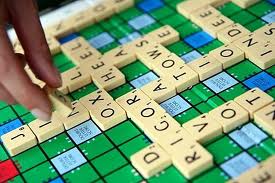Noah felt like he was always hitting the books. While his friends were meeting for pickup soccer games after school, he was back home in his room reading and rereading the same material. But no matter how hard Noah studied, he had difficulty remembering things and his grades stayed average. Meanwhile, his friend Sean, who never seemed to study, always aced tests. It didn’t seem fair.
were meeting for pickup soccer games after school, he was back home in his room reading and rereading the same material. But no matter how hard Noah studied, he had difficulty remembering things and his grades stayed average. Meanwhile, his friend Sean, who never seemed to study, always aced tests. It didn’t seem fair.
Because Noah was so frustrated, his dad and teachers made an appointment with the school psychologist. She diagnosed Noah with a learning disability. Although Noah felt relieved to know what was going on, he was also worried. He didn’t like the “disability” label. And he was concerned about what it might mean for his future. Would he be able to go to college and study engineering as he’d hoped?
Many people nowadays tend to discriminate those who are physically and mentally challenge. In the developing world, we are used to those people who are functual and “normal” as common people would term it. Having Disability is a big NO! in our society, but are we in the right position to discriminate and judge these people?
A type of disability is what we called “LEARNING DISABILITY”.
Learning disabilities are problems that affect the brain’s ability to receive, process, analyze, or store information. These problems can make it difficult for a student to learn as quickly as someone who isn’t affected by learning disabilities.(Kids.org)
There are many kinds of learning disabilities. Most students affected by them have more than one kind. Certain kinds of learning disabilities can interfere with a person’s ability to concentrate or focus and can cause someone’s mind to wander too much. Other learning disabilities can make it difficult for a student to read, write, spell, or solve math problems.
The way our brains process information is extremely complex — it’s no wonder things can get messed up sometimes. Take the uncomplicated act of looking at a picture, for example: Our brains not only have to form the lines into an image, they also have to recognize what the image stands for, relate that image to other facts stored in our memories, and then store this new information.
It’s the same thing with speech — we have to recognize the words, interpret their meaning, and figure out the significance of the statement to us. Many of these activities take place in separate parts of the brain, and it’s up to our minds to link them all together.
If, like Noah, you’ve been diagnosed with a learning disability, you’re not on your own. Nearly 4 million school-age kids and teens have learning disabilities, and at least 20% of them have a type of disorder that makes it difficult to focus.
In analyzing this people we should expand our understanding and patience. We should not discriminate them!. I’m so glad that programs such as “BUDOY” can give us an overview of what to do to those who needed our help. In our course REMEDIAL INSTRUCTION IN ENGLISH, we tend to understand people with learning disabilities by knowing what are their needs in order to cope up with the activities of the average person.
A good example of this is Understanding Individuals with DSYLEXIA. Dyslexia (pronounced: dis-lek-see-ah) is a type of learning disability. A person with a learning disability has trouble processing words or numbers. There are several kinds of learning disabilities; dyslexia is the term used when people have difficulty learning to read, even though they are smart enough and are motivated to learn. The word dyslexia comes from two Greek words: dys, which means abnormal or impaired, and lexis, which refers to language or words.Dyslexia is not a disease. It’s a condition that you are born with, and it often runs in families. People with dyslexia are not stupid or lazy. Most have average or above-average intelligence, and they work very hard to overcome their learning problems. Research has shown that dyslexia happens because of the way the brain processes information. Pictures of the brain, taken with modern imaging tools, have shown that when people with dyslexia read, they use different parts of the brain than people without dyslexia. These features also show that the brains of people with dyslexia don’t work efficiently during reading. So that’s why reading seems like such slow, hard work. Most people think that dyslexia causes people to reverse letters and numbers and see words backwards. But reversals occur as a normal part of development, and are seen in many kids until first or second grade. The main problem in dyslexia is trouble recognizing phonemes (pronounced: fo-neems), which are the basic sounds of speech (the “b” sound in “bat” is a phoneme, for example). Therefore, it’s a struggle to make the connection between the sound and the letter symbol for that sound, and to blend sounds into words.This makes it hard to recognize short, familiar words or to sound out longer words. It takes a lot of time for a person with dyslexia to sound out a word. The meaning of the word is often lost, and reading comprehension is poor. It is not surprising that people with dyslexia have trouble spelling. They may also have trouble expressing themselves in writing and even speaking. Dyslexia is a language processing disorder, so it can affect all forms of language, either spoken or written. Some people have milder forms of dyslexia, so they may have less trouble in these other areas of spoken and written language. Some people work around their dyslexia, but it takes a lot of effort and extra work. Dyslexia isn’t something that goes away on its own or that a person outgrows. Fortunately, with proper help, most people with dyslexia learn to read. They often find different ways to learn and use those strategies all their lives. If you have dyslexia, you might have trouble reading even simple words you’ve seen many times. You probably will read slowly and feel that you have to work extra-hard when reading. You might mix up the letters in a word, for example, reading the word “now” as “won” or “left” as “felt.” Words may blend together and spaces are lost. Phrases might appear like this ( see picture below) 
You might have trouble remembering what you’ve read. You may remember more easily when the same information is read to you or heard on tape. Word problems in math may be especially hard, even if you’ve mastered the basics of arithmetic. If you’re doing a presentation in front of the class, you might have trouble finding the right words or names for various objects. Spelling and writing usually are very hard for people with dyslexia.
Proper and reflective Understanding is the basic needs of these people. We should create an environment that will help them to live everything in normal order. As we termed we are “Normal”. So, let’s try to reflect,if we are normal, then we must act as a normal person pursuing an equal environment . The role of the Teacher especially in teaching these special people.
First, as a teacher who is involved in education for the disabled, you must strive to be aware of any obstacles that may be present in your classroom and ultimately posing distractions for disabled students.
If you are an able-bodied individual, put yourself temporarily in the position of a disabled person by navigating your classroom on crutches, in a wheelchair, and with your vision and hearing impaired (with a blindfold and earplugs). By forcing yourself to experience a familiar atmosphere without the assistance of some of your senses and while lacking mobility, you may be surprised that there are several aspects of your classroom that would ultimately be an obstacle for a disabled person.
Even if you are not currently teaching any disabled students, your classroom should be accessible to people of all abilities, including visitors. Even something as small as a threshold within a doorway can be challenging for someone who uses a walker or wheelchair.
Also, take care to ensure that there is enough space between the desks for a disabled student to navigate freely without fear of stumbling or getting caught on the legs of the desk. Although most disabled students will ask for help when it is needed, you will often find that they prefer to be as independent as possible. It is your responsibility to help them achieve this objective by making your classroom as accessible as possible.
 If you are teaching disabled students, you also must be aware of procedures that are in place regarding the extent of discipline that can be administered when necessary. The basic intent of the laws that are currently in place helps to safeguard against children being expelled or suspended from school because of something related to their disability.Although teaching disabled children comes with its own set of challenges, they can be easily conquered with a bit of advance planning.
If you are teaching disabled students, you also must be aware of procedures that are in place regarding the extent of discipline that can be administered when necessary. The basic intent of the laws that are currently in place helps to safeguard against children being expelled or suspended from school because of something related to their disability.Although teaching disabled children comes with its own set of challenges, they can be easily conquered with a bit of advance planning.
According to RAVEN 1994;2011, Teachers can provide mainstreaming in a variety of ways depending upon the strengths, weaknesses and specific educational needs of each disabled student. When a special education student is enrolled in a regular classroom, the teacher needs to understand the student’s disability and its effect on classroom performance. This will allow the teacher to plan appropriate activities that will build upon the student’s current skills and promote success. The student likely will benefit from placement in the regular classroom if the teacher will take the following actions:
- Focus on the student’s actual skill deficits and behaviors rather than the student’s special education classification.
- Create lessons and activities that help increase the student’s self-esteem.
- Develop specific, achievable objectives for both learning and social behavior, and teach directly to those objectives.
- Ensure that the student understands all of your directions.
- Give assignments and evaluate performance based on the student’s current level of functioning, rather than the level of other students in your class.
- Deal with behavioral problems by setting firm, fair rules and by enforcing them consistently and impartially.
- When faced with a particularly difficult problem, ask for advice from special education specialists at the school.
- Involve the student’s parents and ask for their help and support.
“The human species is made up of seven billion subspecies each consisting of one specimen”. ~Robert Brault




















